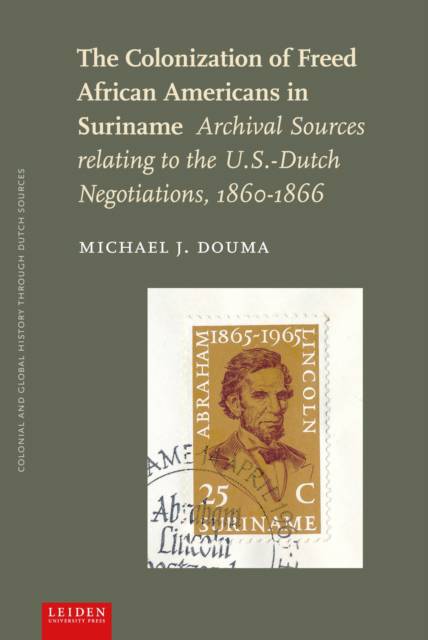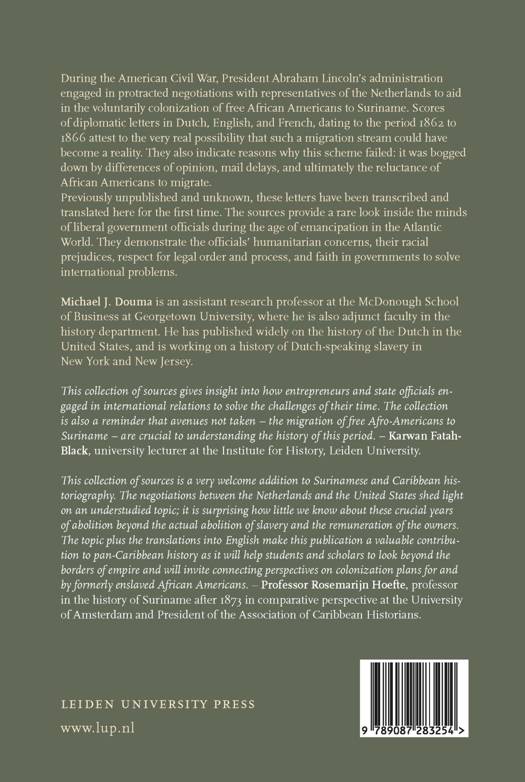
Door een staking bij bpost kan je online bestelling op dit moment iets langer onderweg zijn dan voorzien. Dringend iets nodig? Onze winkels ontvangen jou met open armen!
- Afhalen na 1 uur in een winkel met voorraad
- Gratis thuislevering in België vanaf € 30
- Ruim aanbod met 7 miljoen producten
Door een staking bij bpost kan je online bestelling op dit moment iets langer onderweg zijn dan voorzien. Dringend iets nodig? Onze winkels ontvangen jou met open armen!
- Afhalen na 1 uur in een winkel met voorraad
- Gratis thuislevering in België vanaf € 30
- Ruim aanbod met 7 miljoen producten
Zoeken


The Colonization of Freed African Americans in Suriname
Archival Sources Relating to the U.S.-Dutch Negotiations, 1860-1866
Michael Douma
€ 55,00
+ 110 punten
Omschrijving
During the American Civil War, President Abraham Lincoln's administration engaged in protracted negotiations with representatives of the Netherlands to aid in the voluntarily colonization of free African Americans to Suriname. Scores of diplomatic letters in Dutch, English, and French, dating to the period 1862 to 1866 attest to the very real possibility that such migration stream could have become a reality. They also indicate reasons why this scheme failed: it was bogged down by differences of opinion, mail delays, and ultimately a reluctance of any African Americans to migrate. Previously unpublished and unknown, these letters have been transcribed and translated here for the first time. The sources provide a rare look inside the minds of liberal government officials during the age of emancipation in the Atlantic World. They demonstrate the officials' humanitarian concerns, their racial prejudices, respect for legal order and process, and faith in governments to solve international problems.
Specificaties
Betrokkenen
- Auteur(s):
- Uitgeverij:
Inhoud
- Aantal bladzijden:
- 300
- Taal:
- Engels
- Reeks:
- Geïllustreerd:
- Ja
Eigenschappen
- Productcode (EAN):
- 9789087283254
- Verschijningsdatum:
- 11/03/2019
- Uitvoering:
- Paperback
- Formaat:
- Trade paperback (VS)
- Afmetingen:
- 155 mm x 231 mm
- Gewicht:
- 430 g

Alleen bij Standaard Boekhandel
+ 110 punten op je klantenkaart van Standaard Boekhandel
Beoordelingen
We publiceren alleen reviews die voldoen aan de voorwaarden voor reviews. Bekijk onze voorwaarden voor reviews.












